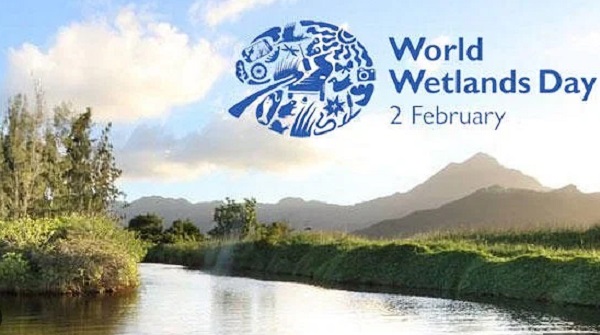
World Wetlands Day
On February 2, 2023, Ghana joined the international community to celebrate World Wetlands Day.
The purpose of the day is to increase people’s understanding of the critical importance of ecosystems. It also aims to raise global awareness about the vital roles of Wetlands for people and the planet.
Advertisement
It is significant to note that the day marks the adoption of the Convention on Wetlands on February 2, 1971, in the Iranian City of Ramsar. Following the convention has been the establishment of Ramsar Sites.
Definition
Wetlands are defined as areas where water covers the soil or is present either at or near the surface of the soil all year or at varying periods of time during the year, including the growing season.
Naturally, groundwater from Wetlands gradually recharges and maintains stream flow.
They intercept run-off from the surface prior to reaching open water and remove pollutants through physical, chemical and biological processes.
Wetlands can be found as marshes, swamps, bogs and fens.
Marshes are wetlands that are frequently or continually inundated and are dominated by herbaceous species adapted to these hydrologic conditions.
Swamps are dominated by woody plants.
Bogs are wet muddy grounds that are too soft to support any heavy body.
Fens are just like Bogs but are fed from a steady source of water.
It is said that Fens require thousands of years to develop and cannot easily be restored once destroyed.
Importance
Wetlands are referred to as the “kidneys of the landscape” (President Franklin D. Roosevelt of the United States of America (USA)).
They are valuable for a number of reasons.
They range from the provision of many societal benefits: water quality improvement, flood protection and storage, shoreline erosion control, food and other economically beneficial natural products for human use.
As a habitat for biodiversity, they provide shelter for fish and wildlife and protect threatened and endangered species.
Besides, they offer opportunities for education, research, recreation, and the admiration of aesthetic values.
Last but not least, of the functions is the crucial role they play to combat or mitigate the effect of climate change.
Wetlands are vital ecosystems.
They are home to 40 per cent of the world’s species.
Wetlands currently cover 5.5 per cent of the land in the 48 contiguous states.
Ninety-eight per cent (98%) of these wetlands are freshwater, the rest are marine and estuarine.
Degradation
Many of the world’s wetlands are degraded.
The degradation continues, unfortunately. The danger to the ecological health of the remaining wetlands is from habitat fragmentation for infrastructure and polluted run-off, water level changes and invasive species, especially in urbanised areas.
In Ghana, the conservation and sustainable use of wetlands are absent.
The rich, the influential and certain unscrupulous duty bearers, including chiefs and other land owners, as well as public servants, have decided to cash in from the mad rush to acquire wealth by decimating the remaining wetlands, particularly, in the urban centres where they are appropriately referred to as ‘Nature Reserves’.
Celebrations
The contracting parties of the convention have been celebrating World Wetlands Day since 1997 when it was first established.
The theme for 2023 is ‘Wetlands Restoration’ and highlights the urgent need to prioritise wetlands restoration.
The World Wetlands Day awareness campaign is organised by the Secretariat of the Convention.
Countries organise a variety of events, including lectures, seminars, symposia, nature walks and children’s art contests, community clean-ups, radio and television interviews, letters to print and electronic media, to launch Wetlands policies, new Ramsar Sites and new programmes at the national levels.
During the celebration, there is an appeal to invest financial and political capital to save wetlands from disappearing and to restore those we have already degraded.
Action
The theme calls for action to do everything humanly possible to restore the Wetlands in Ghana.
During the campaign, there is a need to highlight their importance and the urgent need to prioritise wetlands restoration.
The country, despite the financial challenges, must mobilise funds and increase the political will to invest to save the wetlands from disappearing and to restore already degraded ones.
We must not lose sight of the fact that with the current wave of climate emergencies, we need the wetlands to protect us from food and clean water crises, flooding and extreme weather conditions.
Henceforth, we must refrain from the negative actions that will land us all into insurmountable trouble in the near future.
The writer is the Coordinator,
Forests, Biodiversity and Climate Change,
Frontier Institute of Development Planning (FIDEP).
E-mail: [email protected]



